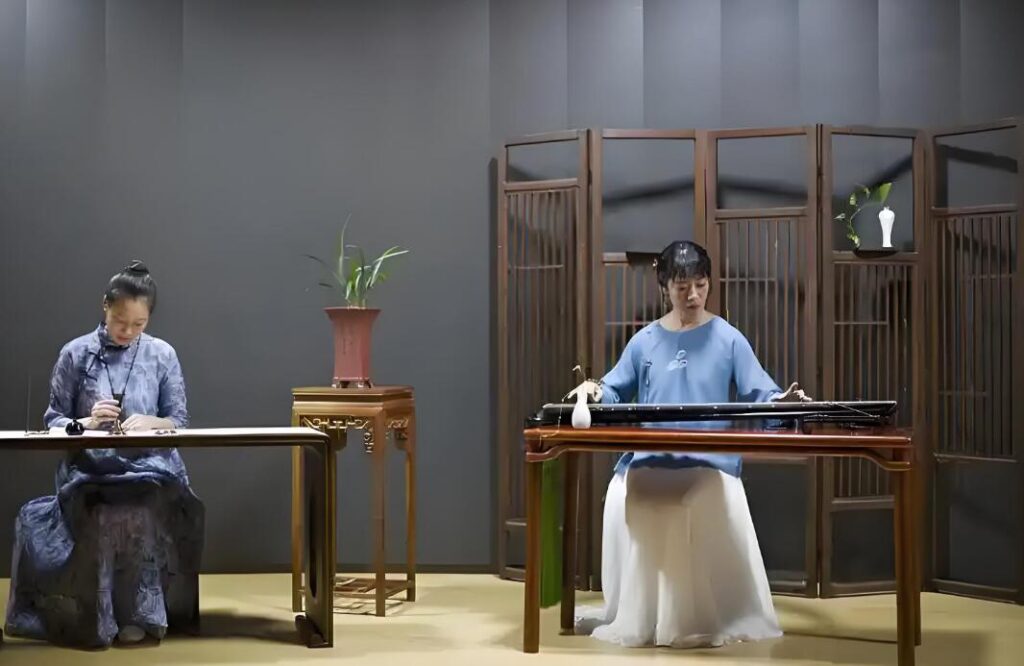
Should music be used when practicing Tai Chi? This is a controversial topic.
In fact, integrating music into the practice process is a feature of the rise of “Tai Chi Exercise”. Traditionally, for hundreds of years, Tai Chi masters and practitioners did not accompany their practice with music. As Tai Chi became popular among the public, especially in the past few decades, in order to meet the needs of group practice and increase the fun of practice, music was widely introduced and quickly popularized, becoming a very common practice aid.
Whether or not to play music when practicing Tai Chi depends largely on the individual’s practice purpose, the stage they are in, and their understanding and pursuit of Tai Chi culture.
Tai Chi can be divided into four stages from shallow to deep: the stage of leading the body with the hands, the stage of leading the hands with the body, the stage of leading the hands with the qi, and the stage of leading the hands with the mind.
The first two stages are the primary stage. For practitioners at this stage, music can create a more relaxed and enjoyable learning environment, help them better enjoy the practice process, and thus increase their enthusiasm for continuous practice.
The rhythm of music can sometimes help practitioners adjust the rhythm of breathing and movements, especially in the early stages of learning a specific routine, which helps to remember the sequence of movements.
In public performances or group exercises, music can add to the artistry and appreciation of the performance and enhance the overall atmosphere.
However, even after more than ten years of Tai Chi practice, most practitioners still remain at the initial stage of relying on music for practice. They only revolve around the external form of Tai Chi and indulge in the superficial charm of competitions and performances, but ignore the importance of in-depth exploration of Tai Chi’s inner cultivation, and fail to fully explore and experience the deep effects of Tai Chi in health preservation.
When it comes to the stage of leading the hands with qi and leading the hands with intention, that is, for traditional practitioners who pursue the essence of Tai Chi, music may interfere with the inner sense of “qi” and the natural flow of fists, affecting the core principle of Tai Chi “moving qi with intention and moving the body with qi”.
Inappropriate music may cause emotional fluctuations, which is contrary to the peaceful state of mind pursued by Tai Chi, or cause stiff movements or loss of natural fluency due to the mismatch between the rhythm of music and fists.
Excessive reliance on the rhythm of music for practice may neglect the accuracy of Tai Chi techniques and the cultivation of inner thoughts, deviating from the true nature of Tai Chi as an internal martial art. The ultimate state pursued by Tai Chi is the ultimate tranquility of the mind, that is, “quiet state”. In this state, practitioners can reach the chaotic unity of Tai Chi, achieve harmonious coexistence with nature, and achieve “unity of man and nature” where both the self and the world are forgotten.
If music is added during practice, it will often disturb the inner peace, making the progressive practice path of guiding inner consciousness through external movements and promoting the improvement of external forms with inner thoughts blocked, thus hindering the theory and method of Tai Chi from basic, advanced to advanced.
